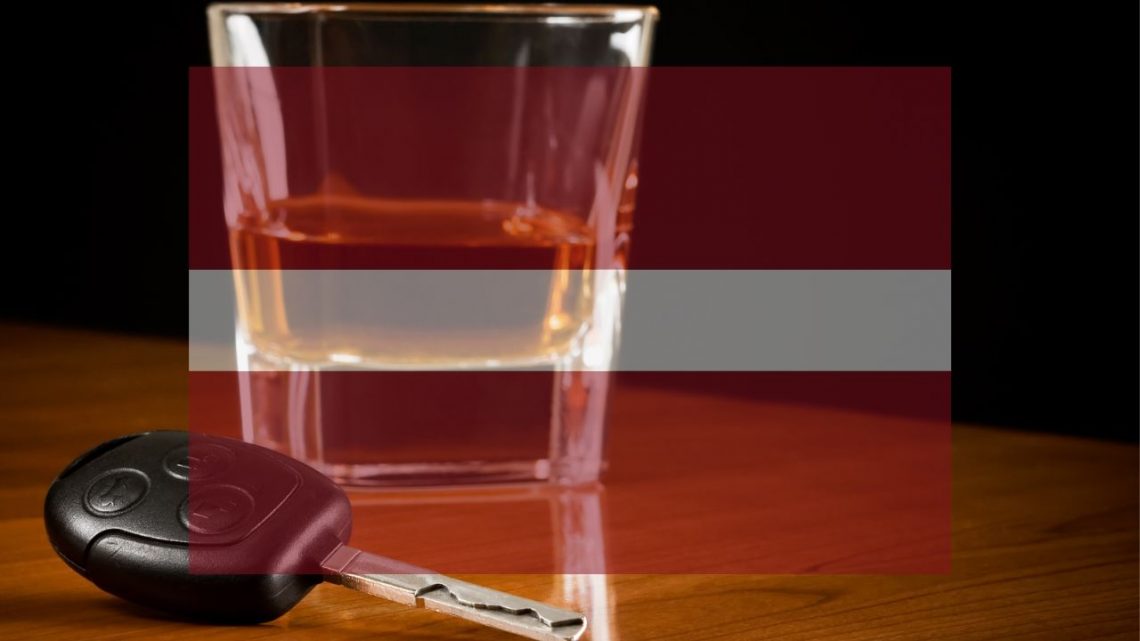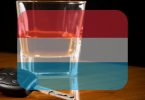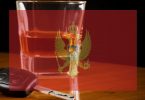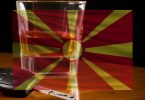In Latvia, the legal limit for blood alcohol content (BAC) for drivers is set at a maximum of 0.05%, equating to 0.5 grams of alcohol per liter of blood.
This article intends to raise awareness regarding driving under the influence in Latvia. The information presented on this website does not endorse or promote impaired driving, irrespective of geographical location or legal jurisdiction.
Drink and Drive Penalties and Punishments in Latvia
In Latvia, the consequences of driving under the influence of alcohol are severe, reflecting the country’s stern stance on ensuring road safety. The penalties for drink-driving vary based on the blood alcohol content (BAC) level at the time of the offence and include fines, driving bans, and penalty points. It is crucial for drivers to understand these repercussions and to regularly check the official country’s website for any updates or changes to the law. Below is a summary of the penalties and punishments for different BAC levels:
-
For novice drivers (less than two years’ experience):
- BAC from 0.2 to 0.5 g/L:
- Fine: €200 – €430
- Driving ban: Six months
- Penalty points: 6
- BAC from 0.2 to 0.5 g/L:
-
BAC from 0.5 to 1.0 g/L:
- Fine: €430 – €640
- Driving ban: One year
- Penalty points: 8
-
BAC from 1.0 to 1.5 g/L:
- Fine: €850 – €1400
- Driving ban: Three years
- Penalty points: 8
-
BAC above 1.5 g/L:
- Fine: €1200 – €2000
- Driving ban: Five years
- Penalty points: 8
-
Refusal to Undergo a Medical Examination:
- If a driver refuses the medical examination to determine the level of blood alcohol concentration, the following penalties apply:
- Fine: €1200 – €2000
- Driving ban: Five years
- Penalty points: 8
- If a driver refuses the medical examination to determine the level of blood alcohol concentration, the following penalties apply:
Rehabilitation and Alcohol Interlock Programmes
Currently, Latvia does not have an Alcohol Interlock rehabilitation programme in place. However, a driver penalized for operating a vehicle under the influence can only re-obtain the right to drive after participating in a behavioural correction programme. This programme is not specifically an alcohol rehabilitation course but is mandated when a driver accumulates eight penalty points. Failure to participate in the program within six months results in an additional two penalty points. The programme’s content is tailored to how the eight-point threshold was reached, with driving under the influence being one of the quickest ways to accumulate points. The course spans ten hours, delivered over four weeks at a rate of 2.5 hours per week.
It’s important for drivers in Latvia to stay informed about the laws and penalties related to drink-driving. Regular visits to the official country’s website are recommended for the most current information and to ensure compliance with traffic regulations.
How to Calculate if Your Alcohol Blood Limit is Legal in Latvia
In Latvia, law enforcement officials use breathalyzers and blood tests to determine a driver’s blood alcohol content (BAC) level. This measurement is critical in enforcing drink-driving laws and ensuring that drivers adhere to the legal BAC limit. As a former phlebologist with a decade of experience, I understand the importance of accurately gauging one’s BAC level to prevent impaired driving. Here are two methods I recommend for estimating your BAC level:
- Use a High-Quality Alcohol Breathalyzer:
- Based on my professional experience, the most accurate breathalyzer on the market in Latvia is the BACtrack S80. It is renowned for its professional-grade accuracy and has received approval from the DOT & NHTSA, in addition to being FDA 510(k) cleared. The BACtrack S80 is an excellent investment for those looking to ensure they remain within legal limits. Keeping one in your vehicle can be a practical way to assess your BAC level, especially given that individuals often misjudge their impairment level. This device can be a vital tool in making responsible decisions about driving after consuming alcohol.
- Utilize a Specialized BAC Calculator:
- In collaboration with fellow phlebologists and web developers, I have developed a BAC calculator that is accessible online. This tool is designed to help you estimate your BAC level based on various factors, including the amount of alcohol consumed, your weight, and the time elapsed since your last drink. While this calculator is a useful resource, it’s important to remember that it provides an estimation rather than a precise measurement.
It is crucial to bear in mind that both of these methods offer estimations of your BAC level and are not 100% accurate. Factors such as metabolism, food intake, and individual health conditions can affect your actual BAC. Therefore, these tools should be used as guidelines to assist in making informed decisions about driving. If there is any doubt about your sobriety, the safest choice is always not to drive. By taking these precautions, you contribute to the safety of everyone on the road and comply with Latvia’s laws on drink-driving.
Ways to Avoid Driving with a High BAC in Latvia
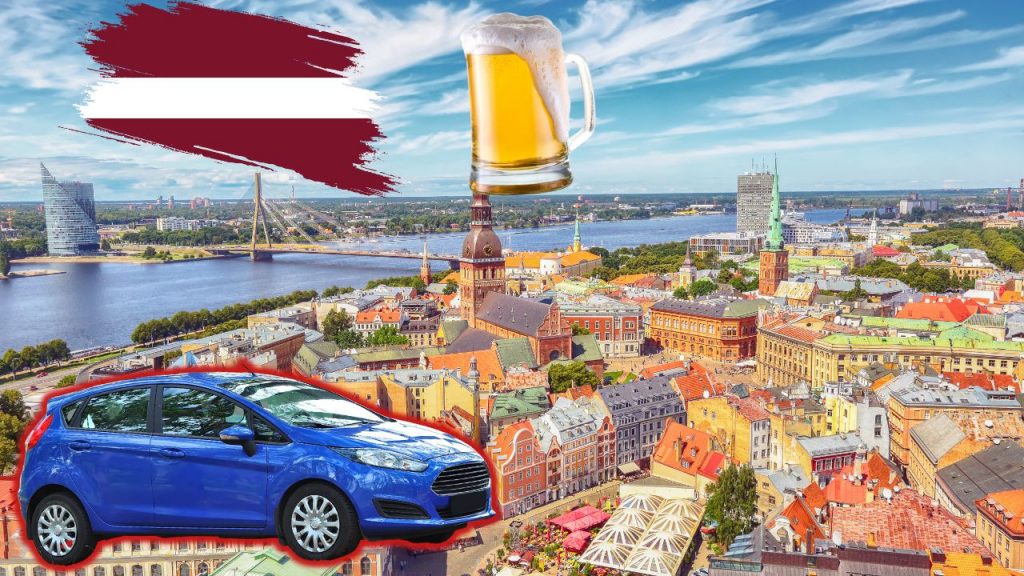
Driving under the influence of alcohol poses significant risks, not only to the driver but also to others on the road. In Latvia, where the legal BAC limits are strictly enforced, it’s essential to plan ahead to ensure you’re not driving while impaired. Here are some practical recommendations for avoiding driving with a high BAC:
- Use Taxi Services or Ride-Sharing Apps:
- Opting for a taxi or a ride-sharing app like Uber is one of the simplest and most effective ways to avoid driving after consuming alcohol. In Riga, consider using local taxi companies such as “Diennakts taksometra pakalpojumi” for reliable service around the clock. In Daugavpils, “Bolt-U” offers a convenient option for safe transportation. These services provide a hassle-free way to get home safely without the risk of drink-driving.
- Order a Designated Driver Service:
- If you find yourself in a situation where you’ve driven to a location and consumed alcohol, leaving your car behind might not be your preferred option. Fortunately, designated driver services offer a solution. Companies like “Smile Taxi” in Riga and “Kiwitaxi” in Daugavpils provide drivers who can drive you and your car home. This service ensures both you and your vehicle arrive safely, eliminating the need to leave your car unattended. To find a designated driver service in your area, a simple Google search for “designated driver service” followed by your city’s name will yield relevant options.
By utilizing these alternatives, you can enjoy social events without compromising your safety or that of others. Remember, planning how to get home before you start drinking is key to avoiding situations where you might be tempted to drive under the influence. Making use of readily available services like taxis, ride-sharing apps, or designated driver services not only keeps you within the law but also contributes to a safer community.
Sticking to Drink and Drive Laws in Latvia: Sad Statistics
Between 2010 and 2019, Latvia saw a significant drop in alcohol-related road fatalities, with an extraordinary 65% decrease from 2019 to 2020, from 25 to 13 deaths, attributed to COVID-19 restrictions. Despite this progress, 2021 experienced a rise to 20 fatal accidents involving alcohol.
To ensure road safety, individuals must avoid driving after drinking. Using alternative transportation like taxis or authorized driving services is crucial when travel is necessary after consuming alcohol. Being familiar with local DUI regulations and monitoring your BAC with a breathalyzer are key practices to prevent impaired driving.
For detailed insights into Latvia’s regulations on drunk driving, the European Transport Safety Council (ETSC) website is a valuable resource. Adhering to the legal BAC limit of 0.05% is vital, and in cases of doubt, opting for safer transportation alternatives is recommended.

